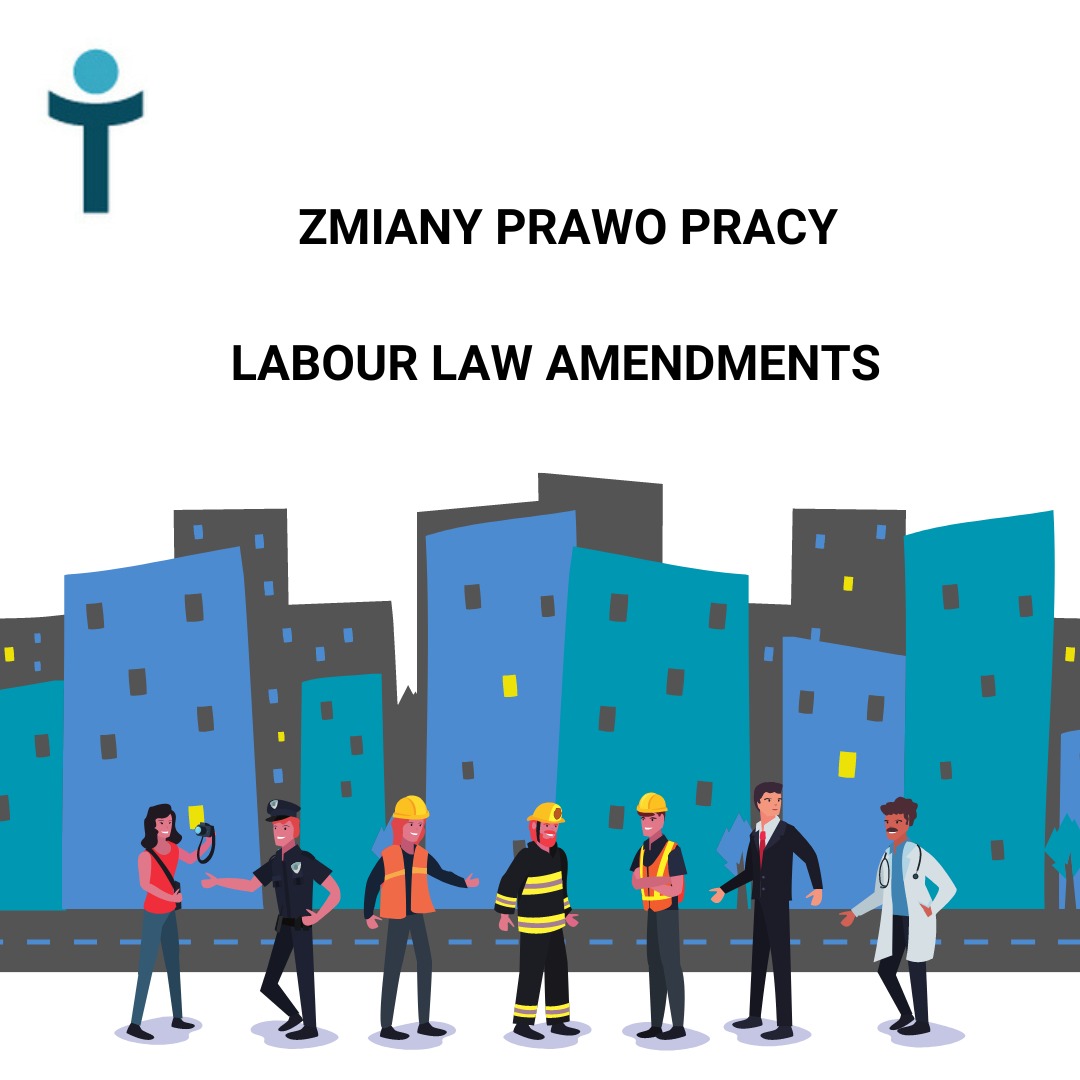
Changes in Social Security and labour law starting in 2023. How to plan for the changes while not forgetting anything? Here’s a list of the most significant modernizations!
Some of them are permanent changes to the amendment schedule, such as changes to the minimum wage rate, the amount of the projected average salary or the coefficient used to calculate vacation pay. In addition to these changes, 2023 contains a number of amendments that introduce completely new solutions into the legal system. These changes force employers to develop and implement new processes.
New regulations, such as remote working and sobriety checks, as well as monitoring employees for the presence of alcohol-like agents in their bodies, are doomed to be controversial and time-consuming.
The adjustments are related to the implementation of two European directives, namely Directive 2019/1152 on transparent and predictable working conditions in the European Union and Directive 2019/1158 on work-life balance for parents and caregivers. (the so-called work-life balance directive).
The aim of the new legislation is, among other things, to improve labour market transparency and promote safer and more predictable employment, and to achieve gender equality in labour market opportunities by making it easier for workers who are parents or caregivers to balance work and family life.
Termination of a fixed-term employment contract.
Currently, an employer who wants to terminate a fixed-term contract is not required to give a reason for the termination, nor is he required to consult with a trade union group. After the new regulations come into force, any termination of a fixed-term employment contract must include a reason for termination. In addition, the employer must inform the company union group representing the employee of its intention to terminate, as well as the reasons for the termination.
Employees will also be given the opportunity to pursue new claims. This is because the employee will be able to claim in court not only wages, but also reinstatement.
Raising the minimum wage.
The minimum wage will increase every year. What is new is that it will be raised twice in 2023. The minimum wage for contract workers has been set at PLN 3490 from January 1, 2023, and will rise to PLN 3600 from July 1. The minimum hourly rate quoted for those employed on the basis of a contract of mandate and other contracts to which the provisions on commission apply will also change twice. From January 1, 2023, it is PLN 22.80, and from July 1, 2023, it will increase to PLN 23.50. As a result, benefits for employees, the amount of which is determined by the minimum wage, including demurrage and night work allowance, among others, will double. It should also be mentioned that in 2023 the amount of an employee’s salary before reductions, minimum compensation for violation of the principle of equal treatment in employment and reimbursement for an employee who has been harassed will change twice.
The minimum basis for sick pay will change with the change in the minimum wage. This is due to the fact that the sickness benefit base for full-time employment cannot be less than the minimum wage after deducting 13.71% of this income.
How long can a fixed-term contract last?
The regulation allowing renewal of a probationary contract for the same type of work with the same employee after three years will be repealed. On the other hand, it will still be possible to sign such a contract with the same employee for conducting a different type of work.
In addition, the legislator has made the length of the probationary period dependent on the length of the intended future cooperation. As a result, the employer will be able to conclude a probationary employment contract for a fixed period of:
- 1 month – in case the employer intends to conclude a fixed-term employment contract of less than 6 months after the trial period;
- 2 months – in case the employer intends to conclude after the probationary period an employment contract for a fixed term of at least 6 months and less than 12 months;
- 3 months – in other cases.
IT framework for the management of labour contracts and commissions.
system will be accessed by logging in with a verified identity at praca.gov.pl or biznes.gov.pl. Technology will provide pre-filled contract forms. Access to the ICT system will be available to micro-entrepreneurs, non-micro-entrepreneurs employing no more than 9 people, farms and individuals assigning labour.
What are the additional employment opportunities?
An employer will not be able to prohibit an employee from simultaneously remaining in an employment relationship with another employer or simultaneously remaining in a legal relationship that is the basis for the provision of work other than an employment relationship under the new rules. (For example, under a civil law contract). Importantly, the company can still prevent the employee from participating in competing businesses.
What is the increase in business travel benefits?
The per diem rate for domestic business travel, as well as the flat rate for accommodation and transportation increased on January 1, 2023. The maximum limit is PLN 45. As a result, the lump sum for overnight stay increased to PLN 67.50 (150% of the full allowance), and the lump sum for transportation increased to PLN 9 (20% of the full allowance). As a result of the increase in the per diem rate, as of January 1, 2023, an employee is entitled to compensation for an overnight stay during domestic travel at a facility offering accommodation services in the amount specified on the bill, but not more than 20 times the per diem rate, i.e., PLN 900. The amount of per diems for foreign business trips remained unchanged as of November 29, 2022. At that time, the per diem amounts for 31 countries were changed, as well as the limitation on overnight stays for 42 countries.
Employees now have access to a wider range of knowledge
The workplace must notify the employee in writing or electronically about, among other things:
- the employee’s entitled work breaks;
- regulations governing overtime work and its compensation;
- in the case of shift work, regulations governing the transition from one shift to another;
- in the case of more than one workplace – the provisions governing movement between workplaces;
- applicable regulations governing the termination of the employment relationship, including formal requirements, the length of notice periods and the time limit for appeal to the labour court;
How to apply for a change in working conditions?
An employee who has been employed at the workplace for at least 6 months may once a calendar year send to the employer (electronically or on paper) a request for a change in the terms and conditions of employment, in particular a request:
- for a change in the type of employment contract for an indefinite period, or
- for more predictable and safer working conditions, including a change in the type of work or full-time employment.
Employers must respond to the employee within one month of receiving the request, and if the request is denied, the reason for the denial must be given.
What are the differences in the amount of “mileage”?
The boss should reimburse an employee who uses a personal vehicle for business purposes. Reimbursement for local driving can be in the form of a monthly lump sum calculated as the result of the rate per kilometre of mileage, the so-called “kilometre allowance,” and the monthly limit of kilometres for local driving. The parties to the employment relationship may also establish a “kilometre allowance,” which is the product of the actual kilometres driven and the rate per kilometre driven. As of January 17, 2023. “mileage allowance” per 1 km is:
for a passenger car:
- with engine displacement up to 900 cm3 – PLN 0.89,
- with engine displacement above 900 cm3 – PLN 1.15,
- for a motorcycle – PLN 0.69,
- for a moped – PLN 0.42.
Remote work
We wrote about remote work in a previous post here.
What are the additional work breaks?
If the daily working hours of an employee are as follows:
- will be at least 6 hours – the employee is entitled to a 15-minute break;
- will be longer than 9 hours – the employee is entitled to an additional 15-minute break at work;
- will be longer than 16 hours – the employee is entitled to another 15-minute break at work.
Let’s start
cooperating
Send us a message whether you are thinking of a career change, looking for exceptional talent or just would like to meet for a coffee and chat.
-
Next Post
Social Media Sourcing in Recruitment
Related Posts
How to Choose the Best IT Recruiting Firm: Key Success Factors for 2024
In 2024, the IT industry is no longer a bidding paradise, but the demand for…
Women in Tech Statistics in 2024: Trends, Gaps, and Challenges
The tech industry is evolving, with recent data shedding light on the role of women…
Challenges in recruiting Women for Tech roles
Recruiting women, particularly in certain industries and roles, presents a unique set of challenges. These…
Empowering Women in Tech: Key Initiatives in Poland
The tech industry in Poland is witnessing a dynamic shift towards inclusivity and diversity, driven…



